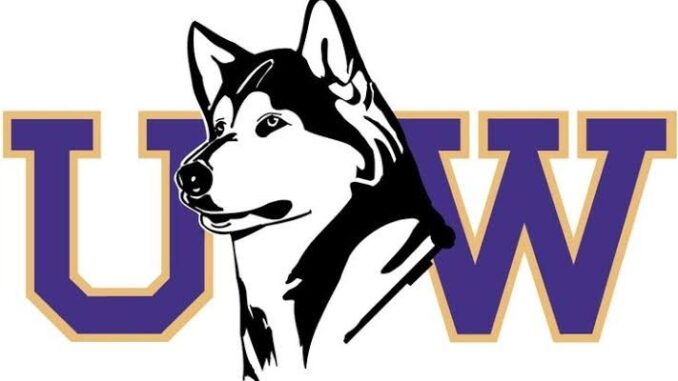

Whispers of uncertainty surround Washington’s young quarterback as the pressure mounts ahead of the 2025 season. With sky-high expectations and a program hungry for dominance, every move he makes—on and off the field—will be under intense scrutiny.
Quarterback Demond Williams Jr. received the kind of directive every young player dreams of when he sat down with Washington head coach Jedd Fisch to map out his offseason training plan. The message? Watch TV. More specifically—watch football.
Fisch, fully serious about the unconventional approach, emphasized the importance of studying the game through elite commentary. “Be an elite student of football. Watch as much as you can and listen to the right people,” he advised. “Listen to Tony Romo, listen to Tom Brady. You don’t need to focus on everyone else, but those two? They’ll teach you more than you ever expected.”
The advice came during a wide-ranging interview on Canzano and Wilner: The Podcast, where Fisch discussed his takeaways from Washington’s first Big Ten season, the growing problem of tampering in college football, revenue-sharing complexities, and his expectations for Williams—the dynamic young quarterback who followed him from Arizona to Washington last winter.
Williams had limited playing time in 2024 until the final two games, but his poised performances against Oregon and Louisville in the Sun Bowl raised excitement for 2025. Fisch stood by his decision to gradually introduce Williams into games, despite early skepticism. “I played him about eight to 10 snaps per game,” he said. “Some doubted that approach, but we were laying the foundation for the program—not just chasing a championship overnight.”
Now, the Huskies’ hopes for a title run in 2025 rest largely on Williams’ ability to master the playbook, dissect defenses, and lead the offense. Fisch sees NFL broadcasts as a critical learning tool, particularly those featuring Romo on CBS and Brady on Fox. “If you pay attention to what Romo and Brady are saying, you’ll pick up way more than you think,” Fisch explained. “I even have my quarterbacks go back and watch old broadcasts they’ve done on YouTube.”
Williams doesn’t need to replicate Michael Penix Jr.’s record-breaking 2023 season for Washington to remain competitive. A performance somewhere between Penix’s dominance and Will Rogers’ solid 2024 campaign could be enough—especially if the defense under new coordinator Ryan Walters remains as strong as it was under Steve Belichick.
/cdn.vox-cdn.com/uploads/chorus_image/image/73825443/usa_today_24773382.0.jpg)
The Big Ten quarterback landscape in 2025 also offers promise. Many top programs are breaking in new, unproven starters. Ohio State will rely on Julian Sayin, a blue-chip recruit with just 12 college passes. Oregon turns to Dante Moore, who saw limited action at UCLA and Oregon. Michigan is expected to start freshman Bryce Underwood, and USC hands the reins to Jayden Maiava. Among top contenders, only Penn State’s Drew Allar and Illinois’ Luke Altmyer have significant experience.
With an open path to success, Williams has a golden opportunity to become one of the most impactful quarterbacks in the Big Ten—if he maximizes every aspect of his preparation. “Everything he does, from nutrition to his presence in the community, is under a microscope,” Fisch emphasized. “Every decision he makes impacts Washington football. We’ll send him to the Manning Passing Academy. We’ll set him up with private training. And most importantly—he’s going to lead this team.”
Leave a Reply